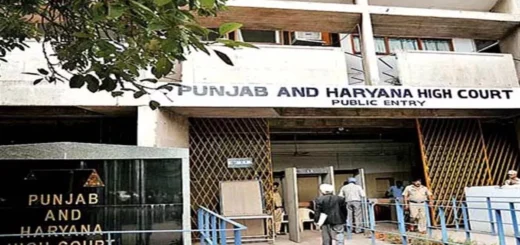State Machinery’s Indifferent and Careless Attitude: Supreme Court Orders States to Punish Officers for Delays Leading to Government Losses.

The Supreme Court has ordered the State of Madhya Pradesh to take action against officials who caused any “delay, deviation, lapses” that led to losses for the Government. This decision came after the Court noted the careless attitude of the officials in a case regarding a delay. The Court rejected a Special Leave Petition (SLP) from Madhya Pradesh that challenged the High Court’s dismissal of a Second Appeal due to a significant delay of 1,788 days. The Bench imposed a fine of Rs. 1,00,000 on the State, stating there was no valid reason for the delay and that the State misused its time. Justices J.B. Pardiwala and R. Mahadevan instructed the State to improve its legal processes, assign responsibility to the relevant officers, and penalize those accountable for any delays or lapses, reflecting the losses incurred by the Government. This directive must be strictly followed by all States.
Deputy Advocate General Harmeet Singh Ruprah represented the Petitioner. The Trial Court had dismissed the Respondent’s case, but the First Appellate Court overturned this decision in favor of the Respondent. After being informed of the judgment, the State did not act promptly, resulting in a delay of over three years before it was allowed to appeal. A Second Appeal was then filed with a request to excuse the 1,788-day delay. However, the High Court denied this request and dismissed the Appeal. The Supreme Court agreed with the High Court’s decision, stating that the State did not provide a satisfactory explanation for the excessive delay.
The Bench noted that the decision to allow a delay should be made carefully, and sufficient reason cannot be broadly interpreted in cases of inaction or negligence. They stated, “We cannot ignore the delay in filing the second appeal, which resulted from the careless attitude of the officials in the State machinery. While the Government usually manages legal matters and files petitions/applications/appeals on time, delays caused by officials failing to communicate information promptly can lead to significant revenue losses for the Government.”
The Bench clarified that if the limitation period for a case is 90 days, the party requesting an extension must explain why they could not start the proceedings within that time. “Events that happened after the 91st day are irrelevant. The court must focus on what prevented the party from filing between the 1st and 90th days,” they explained. As a result, the Court imposed costs on the State, stating, “We find it necessary to impose costs to send a clear message that States should not waste the Supreme Court’s time by appealing against well-reasoned decisions from the High Courts without valid reasons.” Consequently, the Supreme Court dismissed the SLP.
Cause Title: State of Madhya Pradesh v. Ramkumar Choudhary (Neutral Citation: 2024 INSC 932)









